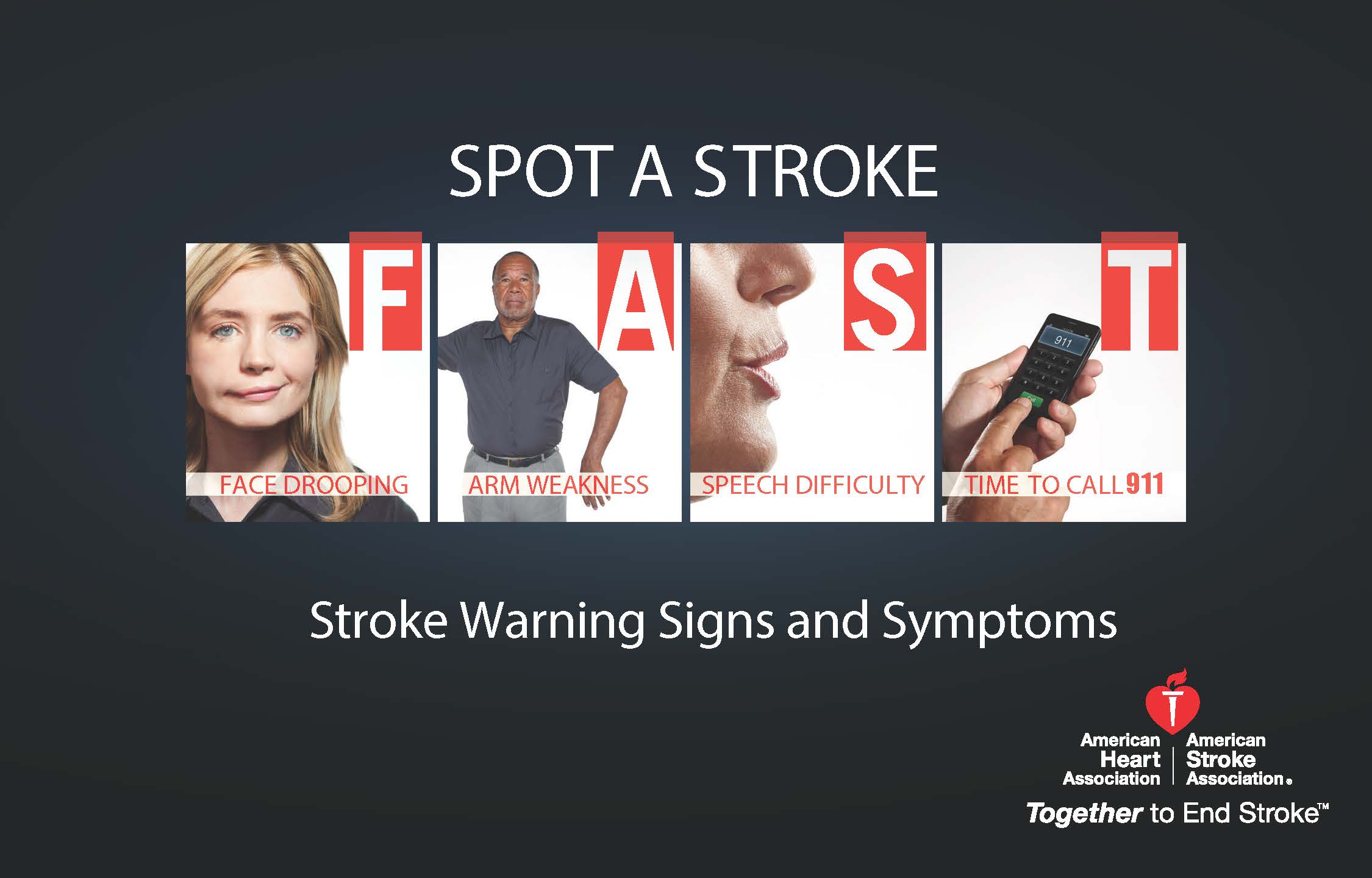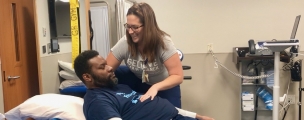With Valentine’s Day celebrated every February, many think of it as the month of love. It’s fitting then that February is also Heart Health Month. It’s important to keep your heart healthy to prevent having a stroke. As you age, your risk for stroke increases; especially if you smoke or suffer from obesity, high blood pressure, diabetes, atrial fibrillation, or heart disease. Whether or not you have any of these risk factors, it’s important to know the signs and symptoms of a stroke. That way, if you or someone you know is experiencing these symptoms, you can act fast and get to a hospital.
The following are signs of stroke according to the American Stroke Association:
- Sudden NUMBNESS or weakness of face, arm, or leg, especially on one side of the body
- Sudden CONFUSION, trouble speaking or understanding speech
- Sudden TROUBLE SEEING in one or both eyes
- Sudden TROUBLE WALKING, dizziness, loss of balance or coordination
- Sudden SEVERE HEADACHE with no known cause
The American Stroke Association also promotes the F.A.S.T. acronym, which provides an easy way to remember the most common signs of stroke:
F – Face Drooping – Does one side of the face droop or is it numb? Ask the person to smile. Is the person’s smile uneven?
A – Arm Weakness – Is one arm weak or numb? Ask the person to raise both arms. Does one arm drift downward?
S – Speech Difficulty – Is speech slurred? Is the person unable to speak or hard to understand? Ask the person to repeat a simple sentence, like “The sky is blue.” Is the sentence repeated correctly?
T – Time to call 9-1-1 – If someone shows any of these symptoms, even if the symptoms go away, call 9-1-1 and get the person to the hospital immediately. Check the time so you’ll know when the first symptoms appeared.
Remember that getting to the hospital fast is life saving when having a stroke. To learn more about the risk factors of a stroke and how to prevent them, you can visit the website for the American Stroke Association.
To learn more about the stroke program at Magee, click here.







